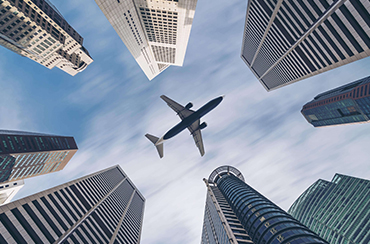
When I worked in aviation in the Gulf region, we weathered some tough conditions : the 9/11 which made lot of people fearful of flying, the SARS outbreak in China in 2003 and almost immediately after, the start of the Iraq War which made most of us tremble for our safety as we were so close to the war zone but the regional aviation business remained strong and the country safe regardless of war zone proximity.
The global recession in 2008 hit the industry the hardest and the airlines saw the need to restructure and find most cost-efficient ways to keep the business profitable.
But nothing hit the aviation industry quite like today’s pandemic! Major airlines which are well known for holding onto their employees no matter what, found themselves with no choice but to sacrifice quite a large percentage of their workforce for the survival of the business and the rest.
These airline employees not only face a great competition from many other thousands of employees made redundant in other industries with an apparent similar skill set, but they enter a world of work which is now reshaping with the speed of light. What terrify the most is the unknown: automation is being accelerated, AI replaced many jobs during the lockdown, SME’s struggle for survival or going out of business every day, retail giants permanently closed or removed their brick and mortar model, tourism is at its lowest, sports and entertainment are trying their best to keep afloat.
Few players in some industries strived during this time with the obvious Healthcare Industry, the Social Media, Food Industry, Telecommuting and E-learning.
So What Is Next For Ex-Aviation Employees?
Through the years, many airlines have gone out of business around the world but not in the Gulf. They always showed resilience, a resilience that is inbuilt in the training an airline employee gets and this is the time that they need to apply it for their own personal gain.
Many of the airline employees that I knew in my time there had a myriad of talents and experience. I met employees who used to be musicians, educators, lawyers, social influencers, entertainers, military, police, medical professionals, fashion consultants and designers, accountants, chefs, nutritionists, fitness instructors, traders, psychologists etc.
The exposure that this industry provides you with, is unique.
When I left, I was approached on Linked in for a lot of different jobs that matched my skill set from training and development, performance management and leadership roles.
On a few occasions I was asked if I was a medical professional by a couple of doctors who were dealing with my son. The years of First Aid training made me so confident, knowledgeable and conversant with medical issues that I felt I could easily retrain into the medical field an idea which I entertained for a short while should my bigger passion of coaching not have won.
These employees need to evaluate their skill set, those that they can see and recognise, and those that they may not be aware of such as a hobby that they had and couldn’t see how they could capitalise on, the many silent skills developed intrinsically on the job, and renter the employment market after this sad blow.
The Gig Economy in the US (Freelancing in America, 2015, 2018) accounts now for 56.7 million of the workforces. Gig workers are those that engage in short term independent freelance work, selling directly to clients or having short term contracts with an organisation. They identify a talent and a niche and capitalise on that. Constant learning, development and often reskilling, comes with the territory.
With the organisations cutting costs, restructuring, and evolving all the time, especially Post Covid, the Gig Economy might be the future for the ex-aviation employees and for many others.
The sun will rise and shine again one day for the airline industry but until then, your resilience is put to test. And I know you can do it!
